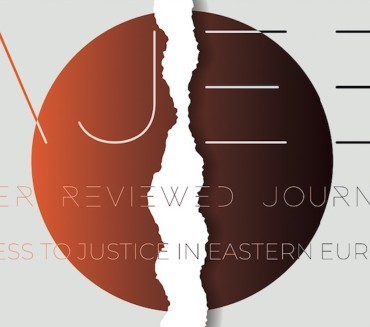1. Introduction. – 2. Corruption in Ukraine. – 3. Anti-Corruption Bodies in Ukraine. – 4. Media, Government and Society: The Theories. – 5. Media, Government and Society: The Ukrainian Practice. – 6. Website Analysis Methodology. – 7. Results and Discussion. – 8. Public Watchdogs’ Right to Access Information Held by State Authorities in Wartime. – 9. Conclusions.
Background: Since 2014, Ukraine has made significant progress in establishing its anti-
corruption framework. However, the communication channels of the country's anti-corruption
agencies remain limited, preventing the open and accessible dissemination of information
regarding their activities. Transparency, as a critical feature of information openness, guarantees
that civil society can access relevant governmental data. In this context, investigative journalism
has proven to be a vital tool for exposing corruption and holding authorities accountable. This
paper examines the role of journalism in combating corruption in Ukraine, emphasising its
importance as a tool for ensuring government accountability and transparency. It provides an
overview of Ukraine's anti-corruption policies and institutions, exploring theoretical models of
media-government-society relations. Considering the 'Public Watchdogs' Right to Access
Information, the article addresses the complexities surrounding the right to access information
under wartime conditions and analyses whether investigative journalism can lead to the exposure
of corrupt officials that prompt state anti-corruption bodies to take action.
Methods: This article applies McQuail’s theory of democratic participation to examine the role
of journalism in reporting corruption cases and promoting transparency. To investigate the
current state of transparency in Ukraine's anti-corruption efforts, it employs content analysis
of the websites of three key institutions: the National Agency on Corruption Prevention, the
National Anti-Corruption Bureau, and the High Anti-Corruption Court of Ukraine, including
its Appeals Chamber. The analysis highlights challenges related to the openness and
accessibility of the information provided by these institutions.
Results and Conclusions: Findings indicate that while state anti-corruption agencies formally
provide access to information through their websites, journalists encounter significant barriers
to timely and systematic access. The research highlights the impact of martial law on
information access, emphasising the state's discretion in balancing security concerns with
transparency obligations. The study concludes with recommendations for improving the
communication strategies of anti-corruption bodies, proposing measures to enhance
transparency and public trust.

